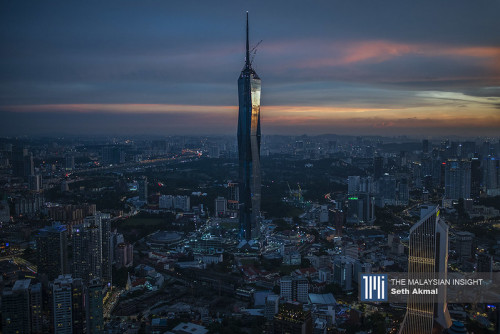CHINA has long been known for its culture of hard work. But the younger generation, wealthier and better educated than their elders, seem to be turning away from this lifestyle in favour of a less productivity-driven approach. This way of life, or even spiritual approach, has come to be known as "chillax."
The "chillax" movement is the result of growing frustration among China's youth. They don't enjoy the same advantages as their elders at a time when the country is experiencing major economic difficulties.
In June, unemployment among the under-30s (aged 16-24) reached a record 21.3% (compared to 5.2% for the workforce as a whole), according to official figures from the National Bureau of Statistics.
Millions of new graduates are struggling to find work that matches their level of education, and are consequently swelling the ranks of the unemployed.
In the absence of professional opportunities, young Chinese people are rejecting the "996" workweek model (9am to 9pm, six days a week). They aspire to a better balance between their personal and professional lives and, more generally, to taking care of their well-being. These demands are at the heart of the "chillax" movement.
This trend manifests itself in a variety of behaviours and initiatives aimed at putting the brakes on current lifestyles and consumption patterns.
"Chillaxers" want to take the time to enjoy life's little pleasures, whether it's taking a walk in the park or cooking a home-cooked meal.
Whatever their chosen activity, it's always about making and taking the time. For those who join the "chillax" movement, it's a question of living more at their own pace on a daily basis and being in tune with their convictions, even if these run counter to the expectations of the Chinese Communist Party.
Slowing the pace, rethinking lifestyles
This call for a slower, more hedonistic lifestyle is reminiscent of the "slow life" counter-culture that emerged in northern Italy in the mid-1980s, driven by the eco-gastronomy pioneer, Carlo Petrini and his Slow Food organisation.
Like the Italian movement, the art of "chillax" has spread to all fields, from tourism and interior design to clothing and cosmetics. In fact, the majority of posts on Chinese social networks mentioning the "chillax" movement are about beauty products, according to figures from the Xiaohongshu platform, quoted in the Baiguan News newsletter.
Fashion is another market caught up in the "chillax" wave. On the internet, many young Chinese women share snapshots of their most casual looks. These are characterised by loose-fitting pieces in shades of beige, brown, white, black and gray.
Actresses Tang Wei and Shu Qi are ambassadors of this very minimalist aesthetic, according to Jing Daily. When it comes to beauty, "less is more" is the theme. The idea is to favour light makeup that makes the face appear radiant and natural. By sporting a healthy glow, you're showing off your healthy and, above all, "chillax" lifestyle.
The appeal of this idea of slowing the pace is also evident in the leisure activities of China's young people. These include walking – slowly, of course – but also camping and fishing.
These activities enable them to reconnect with nature and to participate in a process of discovery.
Tea drinking is also a popular hobby for supporters of the "chillax" movement, according to the Chinese television channel, CGTN. This is almost certainly seen as a way of reconnecting with national heritage, far from the culture of hard work promoted by Beijing.
The "chillax" movement has not, strictly speaking, spread to the professional sphere. But it shares many ideological similarities with "Tang Ping" ("lie flat"). This movement involves doing as little as possible in the office – or even quitting the world of work altogether – in rejection of a productivist, consumerist society.
Indeed, it's a silent form of protest that is winning over more and more of China's young people. – ETX Daily Up, July 19, 2023





















